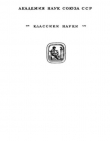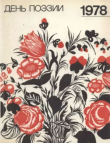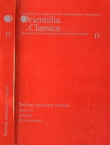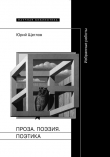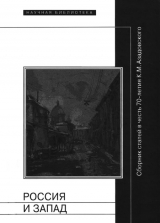
Текст книги "Россия и Запад"
Автор книги: Александр Лавров
Соавторы: Михаил Безродный,Николай Богомолов
сообщить о нарушении
Текущая страница: 36 (всего у книги 39 страниц)
Как-то на одном из заседаний, когда текст какого-то представления на сталинскую премию показался недостаточно обоснованным, Сталин обратился с вопросом, кажется, к министру Кафтанову: «Вы как считаете, какая премия выше: нобелевская или сталинская?» Кафтанов поспешил ответить, что, конечно, сталинская. «Тогда, – сказал Сталин, – надо представлять на премию обоснованно. Мы ведь здесь не милостыню раздаем, мы оцениваем по заслугам».[1336]1336
Шепилов Д. Т. Воспоминания // Вопросы истории. 1998. № 5. С. 27.
[Закрыть]
Естественно, что при такой иерархии ценностей борьба вокруг нобелевской номинации Шолохова, предложенной «либеральными» и «радикальными» кругами шведской интеллигенции, утрачивала для советского руководства пропагандный эффект.
Зато тем более возмутительной, «провокационной» выглядела идея о Нобелевской премии Пастернаку, исходившая от «реакционных кругов» в Англии. Она подрывала самые основы идеологической кампании, поднятой в августе 1946 года и неуклонно ширившейся с тех пор. Поскольку роль Баура в номинации Пастернака никому тогда известна не была, московские руководители писательского союза не сомневались, что выдвижение Пастернака исходило из того гнезда «эскейпистов», которое уже в 1943-м сделало поэта своим «знаменем», пропагандировало его в своих альманахах и в 1945–1946 годах осуществило издание двух его книг в Лондоне.
К статье С. Шиманского «Долг молодого писателя», напечатанной в феврале 1943 года в журнале «Life and Letters То-day», А. А. Фадеев, по своей должности главы писательской организации, возвращался на протяжении 1940-х годов несколько раз. Шиманский выдвигал концепцию отношения художника и общества, совершенно неприемлемую для советской официальной доктрины; при этом в качестве главного аргумента он ссылался на пример Б. Пастернака. Раздражение Фадеева против ереси Шиманского вылилось в дневниковой записи от 17 августа 1943 года, куда он занес пространные выдержки из русского перевода статьи:
С невероятным апломбом прокламируют вещи глубоко провинциальные (с ссылкой на Малларме, на Белого и Блока) о «декадентстве» как «новаторстве», приводящем якобы «в ужас» «столпов» литературы. Все это для того, чтобы оправдать уход ряда молодых поэтов Англии от жизни, от политики, от «злобы дня». О, разумеется, «искусству нельзя диктовать, оно может существовать только в атмосфере свободы». С гелертерской развязностью (почти как в Одессе!) повторяет зады о Пастернаке как о «герое борьбы индивидуализма с коллективизмом, романтизма с реализмом, духа с техникой, искусства с пропагандой». Противопоставляет его как истинную поэзию Эренбургу и Шолохову, которых осуждает за то, что они «стали фронтовыми корреспондентами»[1337]1337
Фадеев А. А. Из записных книжек // Собр. соч.: В 7 т. Т. 6. Статьи и речи, рецензии и заметки, записные книжки. М.: Художественная литература, 1971. С. 467.
[Закрыть].
Именно с целью доказать, каким «провинциальным» анахронизмом является такое истолкование Пастернака, поэта буквально через несколько дней ввели в писательскую бригаду, впервые разрешив ему поездку в армию[1338]1338
Об этой поездке в армию см.: Пастернак Е. Борис Пастернак. Биография. М.: Цитадель, 1997. С. 583–590.
[Закрыть]. Эксперимент не удался, в типового «фронтового корреспондента» Пастернак не превратился, и то, что он написал в связи с поездкой, начальство устроить не могло. К опровержению той же статьи Шиманского Фадеев обратился вновь спустя три года, когда Пастернака решили сделать одной из мишеней нападок в рамках кампании, поднятой Постановлением ЦК от 14 августа[1339]1339
«Фадеев лично ко мне хорошо относится, но, если ему велят меня четвертовать, он добросовестно это выполнит и бодро об этом отрапортует, хотя и потом, когда снова напьется, будет говорить, что ему меня жаль и что я был очень хорошим человеком», – записал Гладков слова Пастернака 15 февраля 1942 г. – Гладков А. Встречи с Пастернаком. С. 380.
[Закрыть]. Обрушившись в своем установочном выступлении на ту статью Шиманского, Фадеев ни разу не упомянул, однако, что главный герой в ней – Пастернак и что именно это и вызвало ярость советских инстанций. С другой стороны, приведя внушительный список советских писателей и поэтов, облеченных доверием и признанием партии и государства, Фадеев имя Пастернака в него тоже включать не стал, притом что там были даже проштрафившиеся за три года до того Асеев, Федин и Сельвинский[1340]1340
Фадеев А. А. Советская литература и великие традиции классиков // Собр. соч.: В 7 т. Т. 5. Статьи и речи. 1928–1947 гг. М.: Художественная литература, 1971. С. 442–500.
[Закрыть]. Такое «двойное» умолчание служило, разумеется, прозрачным намеком, формой «нажима» на поэта. Атак как намек, очевидно, не был адекватно понят и нажим не дал ожидаемого результата, Фадеев в очередном своем выступлении предпринял атаку на Пастернака «открытым текстом», процитировав еретические высказывания Шиманского о нем как дискредитирующую улику, как доказательство падения, до которого дошли и иностранный критик, и объект его похвал. Предостерегающий вывод Фадеева гласил:
Как видите, Б. Пастернаку кажется, что он стоит вне политики. А там, где за морями протягивают ему руку и приглашают за свой стол, потому что видят, что эта позиция и вся эта литературная концепция в какой-то мере отвечает тому идейному и художественному вырождению, которое присуще сейчас значительной части английской буржуазной поэзии и которое хотят направить против нас[1341]1341
Фадеев А. А. Задачи советской литературы // Фадеев А. Собр. соч.: В 7 т. Т. 5. С. 496.
[Закрыть].
Апогеем в ряду антипастернаковских выступлений в советской прессе того периода стала, как известно, статья о нем в газете Агитпропа «Культура и жизнь». Ее появление отметили за рубежом как очередное проявление тенденции СССР к полному разрыву с Западом, к изоляционизму[1342]1342
См.: Werth A. Two Main Problems of Moscow Conference. Coal for France, Reparations for Russia Moscow, March 23 // The Manchester Guardian. 1947. March 24. P. 8.
[Закрыть]. Но мемуарист рассказывает о неожиданно мягком впечатлении, произведенном ею:
И вот наконец ожидавшаяся проработочная статья появилась. Это было 22 марта 1947 года. Я тоже с нетерпением ждал ее, но, прочитав, вздохнул облегченно: при всей недобросовестности и умышленной тупости в ней не было окончательного «отлучения». Стало ясно, что на этот раз вопрос об исключении Пастернака из ССП не будет поставлен[1343]1343
Гладков А. Встречи с Пастернаком. С. 427.
[Закрыть].
Предупреждая ожидания, что его заставят апеллировать к верхам, Пастернак поспешил успокоить О. М. Фрейденберг в письме от 9 апреля:
Последнюю фразу публикаторы справедливо интерпретируют как намек на недавно дошедшее до Пастернака известие о выдвижении его кандидатуры на Нобелевскую премию. Отказавшись от каких бы то ни было обращений в правительственные инстанции («никому не писал»), Пастернак допускал, что рост за рубежом репутации его как «первого поэта современной России» – репутации, находившейся в разительном контрасте с вычеркиванием его имени «у себя дома» в бюрократических обзорах текущей литературы, – вынудит литературные власти к сдержанности в продолжающейся кампании. Конкретные предположения на этот счет возникли у него в связи с поездкой высокопоставленных администраторов Союза писателей Фадеева, Симонова и Шария в Англию. Можно было полагать, что, обнаружив там «подлинный культ» Пастернака и встретившись с кругом людей, из которого шло выдвижение его на Нобелевскую премию, советские литературные администраторы удержатся от соблазна подвергнуть его остракизму.
По-видимому, здесь его ждало некоторое разочарование. Об этом он прямо писал Константину Симонову 11 мая 1947 года, спустя месяц после возвращения делегации в Москву:
Я надеялся, что в какой-то тысячелетней доле среди вещей, виденных делегацией и имеющих отношение к России, столкнетесь Вы и с той бессмыслицей, что я каким-то образом и в какой-то доле известен за границей, и это должно огорчать делегацию и приносить мне горе, и Вы или Шария, или даже Фадеев, среди тысячи других, более важных вопросов, привезете мне выправленную, более логичную, осмысленную и справедливую форму судьбы моей у себя дома. Но очевидно этого не случилось, потому что в противном случае, несмотря на Ваш или А<лександра> А<лександровича> недосуг, эта радость сказалась бы сама по себе на обстоятельствах, прорезалась бы и дошла до меня, а этого нет…[1345]1345
Пастернак Б. ПСС. Т. IX. С. 495.
[Закрыть]
Как бы то ни было, поэт отказался пойти на компромисс, которого от него ждало и к которому его подталкивало литературное руководство. Из рассказа Вяч. Вс. Иванова о разговоре с Пастернаком у них дома мы узнаем, каким должен был быть этот компромисс:
Вышло так, что мама, папа и я уселись у одной стены на закрытой террасе, служившей нам летней столовой, а Борис Леонидович сел напротив нас. Мама передала ему содержание своего разговора с Фадеевым. Фадеев настаивал на том, чтобы Пастернак отмежевался от тех, кто о нем пишет на Западе. Борис Леонидович сразу же и очень решительно отказался: «Я не могу отмежеваться, потому что не вижу, где проходит эта межа». Потом Борис Леонидович добавил, что все об этом уже сказано – так, как ему хотелось бы сказать Ахматовой, прочитав на память ее стихи «Не с теми я, кто бросил землю»[1346]1346
Иванов Вяч. Вс. Перевернутое небо. Записи о Пастернаке // Звезда. 2009. № 9 (сентябрь). С. 159. В более раннем варианте мемуаров Вяч. Вс. Иванов приводит и еще одну фразу Пастернака в этом разговоре: «Пусть меня лучше посодят». – Пастернак Б. ПСС. Т. IX. С. 500 (комментарий).
[Закрыть].
Существо переданного через Ивановых устного ответа Фадееву содержалось и в ссылке на «тех, кто относится ко мне по-человечески», в пастернаковском письме от 11 мая 1947 года к К. М. Симонову, молодому прозаику и поэту, новому сталинскому выдвиженцу, бывшему вторым после Фадеева лицом в Союзе писателей и на фоне прожженных ортодоксов слывшему либералом с еще не искаженным бюрократической системой лицом:
Я не могу понять, почему перевести 6 пьес Шекспира, заложить основу к ознакомлению с целой молодой литературой и самому заслужить расположение какой-то, пусть небольшой, но не совершенно испорченной и уголовной части общества, почему все это – не советская деятельность, а сделать десятую часть этого и плохо – советская? Я далее не понимаю, отчего десятки заслуживающих этого пожилых беспартийных сделали «нашими», премировав их без допроса и таким образом признав за ними это звание, а я из-под взведенного на меня телескопа сам должен составлять свою рентгеноскопию и покупать это нашенство отречением от тех, кто относится ко мне по-человечески, в пользу тех, кто ко мне относится враждебно, и от тех остатков христианства и толстовства, которые при известном возрасте, неизбежны у всякого, кто проходит и заходит достаточно далеко, вступив на поприще русской литературы. Все это чистый бред и абсурд, на который при краткости человеческой жизни нельзя тратить времени. Тем более, что я ничего не боюсь. Моя жизнь так пряма, что любой ее оборот приемлем.[1347]1347
Пастернак Б. ПСС. Т. IX. С. 495–496. Ср. письмо к А. А. Фадееву, июнь 1947 г. // Там же. С. 499–500.
[Закрыть]
Так сложилось шаткое равновесие во взаимоотношениях Пастернака с властями, продержавшееся до смерти Сталина.
Как мы видим, первоначальное выдвижение Пастернака на Нобелевскую премию в январе 1946 года сразу оказалось в фокусе столкновений разнонаправленных векторов общественной и культурной жизни в разных странах Европы. Появление в 1957–1958 годах «Доктора Живаго» заставляло искать прототипа Евграфа, с его «защитной» ролью, в реальной жизни автора и даже предлагать Фадеева в кандидаты. Такое предположение лишено основания потому, что на деле именно на Фадеева (в ком некоторым захотелось увидеть такого защитника поэта) и было возложено в сентябре 1947 года осуществление антипастернаковского сегмента общей кампании. Относительная «мягкость» нападок на поэта не была следствием личного благоволения или могущества высокопоставленного чиновника; она явилась результатом того, что развернувшаяся борьба шла «на равных». Не таинственные покровители в верхах, не «Евграф», не Фадеев и не Симонов «спасали» Пастернака в той, чреватой грозными последствиями, атмосфере – судьбу его определила сложившаяся конфигурация международно-политических факторов. И какие бы ограниченные задачи ни ставил перед собой Н. О. Нильссон в заметке о Пастернаке в «Expressen», рассмотрение ее в целостной литературно-политической картине позволяет считать, что она действительно сыграла «защитную» роль в пастернаковской биографии. Она раскрыла особую высоту статуса поэта за рубежом в момент, несший в себе особую угрозу ему на родине.
____________________
Магнус Юнггрен, Лазарь Флейшман
Russian Diplomats and their Image of Germany before World War I
The relations between Russia and Germany have a long and colourful history, which has been studied thoroughly in most of its aspects[1348]1348
For a concise overview, see: Stökl G. Osteuropa und die Deutschen. Geschichte und Gegenwart einer spannungsreichen Nachbarschaft. Stuttgart, 1982.
[Закрыть]. Religion, politics, philosophy, economy, wars, the arts and culture – these are just some of the areas in which Germans and Russians have been in contact over many centuries. Literary relations have frequently provided some of the most prominent and fruitful links, which Konstantin Azadovskii has for many years explored and actively promoted. The correspondences of writers, their mutual visits, their love for the culture of the other country and their translating activities have all been subjects of distinguished studies by Konstantin Markovich, not to forget his own translations from German literature into Russian.
Mutual perceptions and images of the other have always played an essential role in the relations between Germans and Russians and have been explored accordingly[1349]1349
Goehrke C. Einige Grundprobleme der Geschichte Rußlands im Spiegel der jüngsten Forschung // Jahrbücher für Geschichte Osteuropas [hereafter JBfGOE], Vol. 34. 1986. P. 225–243.
[Закрыть]. They are particularly well known in popular culture and in literature – just think of the archetypical Petersburg Germans in the works of Gogol or of Rilke’s fascination with the Russian spirit, or recall the many cartoons, jokes and popular broadsheets making fun of stereotypical Ivans and Russian bears on the one hand or немцы шмерцы and колбасники on the other[1350]1350
For a general introduction, see: Unsere Russen – Unsere Deutschen. Bilder vom Anderen 1800–2000. Berlin, 2007; Obolenskaia 5. К Obraz nemtsa v russkoi narodnoi kul’ture XVIII–XIX w. // Odissei. М., 1991. P. 160–185; Rauch G. von. Streiflichter zum russischen Deutschlandbilde des 19. Jahrhunderts // JBfGOE. Vol. 12. 1964. P. 5–47; Jahn H. Patriotic Culture in Russia during World War I. Ithaca, 1995. P. 12 and passim.
[Закрыть]. But mutual perceptions have also affected (and continue to affect) other areas of Russo-German relations, beyond the spheres of high and low cultures. Foreign policy, for example, is one such area While its decisions are ideally based on cold reason and national interest, they are, in the end, still taken by human beings and thus prone to personal influences.
The following essay is a study of attitudes towards Germany among members of Russia’s foreign office in the years before 1914. According to historians, the Russian Ministry of Foreign Affairs, just as Russian politics more generally during that time, was effectively divided into a pro– and an anti-German group[1351]1351
Laqueur W. Russia and Germany. A Century of Conflict. Boston, 1965; Lieven. Pro-Germans and Russian Foreign Policy 1890–1914 // International History Review. № 2. 1980. P. 34–54.
[Закрыть]. How much these predispositions influenced actual foreign policy is hard to ascertain. But they did sometimes affect personnel decisions and thus had at least indirectly an effect on the practical diplomatic discourse between Russia and Germany. Most of what will be discussed is based on memoirs of politicians and diplomats, i.e. sources, which many serious historians have been reluctant to use, because of their inherently tendentious nature. And they are indeed not particularly helpful if one wants to investigate actual foreign policy issues, international relations and diplomatic crises. Yet for studying perceptions and stereotypes, such ego-documents are of immense value[1352]1352
Stökl G. Die historischen Grundlagen des russischen Deutschlandbildes // Deutsche im europäischen Osten. Verständnis und Mißverständnis / F. B. Kaiser, B. Stasiewski (eds.). Cologne, Vienna, 1976. P. 33.
[Закрыть]. They still provide the most authentic voice for the convictions of their authors, even if they were written years after the events which they relate.
Russian foreign policy before World War I has been studied in great detail, including the nationalist views of some of its actors. Dominic Lieven, for one, has discussed pro-German attitudes, focusing mainly on three high-ranking officials[1353]1353
Bestuzhev I. V. Bor’ba v Rossii po voprosam vneshnei politiki 1906–1910. М., 1961; Lieven. Pro-Germans.
[Закрыть]. However, he did not consider lower-ranking personnel and has little to say about anti-Germans, many of whom held leading positions. Several of these people have left memoirs and correspondences which allow additional insights into the кулуарная политика at the Ministry of Foreign Affairs. Pro-German writers, as may be expected, tended to draw a rather benign image of Germany and things German. In the writings of anti-German officials, pan-Slavist ideas about a final showdown between Germans and Slavs were often shining through as was the so-called German Drang nach Osten. This relatively new and thoroughly a-historical catchword was commonly mobilized to create a scenario of threat reaching back deep into the past. It allowed for conflating such different phenomena as German rearmament, economic power and 18th c. Volga-German colonists with anti-Russian diatribes by Baltic German activists and the contemporary political crises in the Balkans. Its appeal was such that it even appeared in official Russian diplomatic correspondence, while pan-Slavist ideas were part of the foreign policy programmes of almost all parties represented in the State Duma At least in this respect, politics and public opinion went hand in hand. In most of the Russian press after 1900, Germany was seen as a bastion of reaction and military expansionism. Only some conservative papers like «Grazhdanin» or «Rossiia» were more lenient with German positions, stressing the importance of a strong monarchy and of good relations with Germany in the fight against «anarchism, nihilism and social democracy»[1354]1354
Lemberg H. Der «Drang nach Osten». Schlagwort und Wirklichkeit // Deutsche im europäischen Osten. Verständnis und Mißverständnis / F. B. Kaiser, B. Stasiewski (eds.). Cologne, Vienna, 1976. P. 1–17; Bestuzhev I. V. Bor’ba. P. 147; Jablonowski H. Die Stellungnahme der russischen Parteien zur Außenpolitik der Regierung von der russisch-englischen Verständigung bis zum ersten Weltkriege // Forschungen zur Osteuropaischen Geschichte. Vol. 5. 1957. P. 60–92; Vogel B. Deutsche Rußland-politik. Das Scheitem der deutschen Weltpolitik unter Bülow 1900–1906. Düsseldorf, 1974. P. 24.
[Закрыть].
The most prominent members of the anti-German group were, unsurprisingly, those politicians and officials who favoured close ties with France and Britain. Among them were the two foreign ministers, Aleksandr Izvol’skii (1906–1910) and Sergei Sazonov (1910–1916), as well as Aleksandr Savinskii, chief of the cabinet of the Minister for Foreign Affairs (1901–1910). In his memoirs, he identifies the Drang nach Osten as the most important reason for the outbreak of World War I. Already since Frederick the Great, the Germans «inaugurated their systematic method of the colonization of Russia» and used «the Slavonic nations for extending [their] greatness»[1355]1355
Savinsky A. A. Recollections of a Russian Diplomat. London, 1927. P. 143–145.
[Закрыть]. While one might have expected a more subtle and historically informed analysis of the reasons for the war from such a high-ranking official, the true source of his prejudices comes out when he writes about his Baltic German colleagues. A: cording to him, these people «for the greater number remained German in soul and sentiment and faithful servants of the German cause». While the large number of «Baltic barons» in Russia’s Foreign Service was an undisputed fact, most of them had been in Russian service for generations and had only little connection with the Baltic lands, let alone Germany proper[1356]1356
Lieven D. The Russian Civil Service under Nicholas II: Some Variations on the Bureaucratic Theme // JBfGOE. Vol. 29. 1981. P. 375.
[Закрыть]. But still, their patriotic loyalty was repeatedly put into question, and they were sometimes even deliberately kept away from office.
When, for example, Izvol’skii was looking for an assistant in 1908, he chose Nikolai Charikov, not only as a former classmate, but also because he saw in him a man from «the traditional circle of Russian [as opposed to Baltic!] landed nobility», which he hoped would continue to dominate Russia’s political institutions[1357]1357
Tcharykow N. V. Glimpses of High Politics. Through War à Peace 1855–1929. London, 1931. P. 22, 268.
[Закрыть]. His opinion of officials with German background was in general utterly prejudiced. In his memoirs, he describes one of them in almost cartoon-like fashion as a person «qui représentait le type le plus accompli de ces fonctionnaires d’origine allemande […] souvent très laborieux, mais réussissant surtout à atteindre les degrés supérieurs de la hiérarchie russe à force d’intrigues et de bassesses»[1358]1358
Mémoires de Alexandre Iswolsky. Ancien ambassadeur de Russie à Paris (1906–1910). Paris, 1923. P. 131.
[Закрыть]. Clearly, he did not want to have any such people around him. When he was selecting his staff at the Embassy in Paris and a Baron Uexkoll was suggested to him as attache, he responded acidly in a letter to Sazonov: «Is it really impossible to find a young man with university education and a plain Russian family name?»[1359]1359
Stieve F. Der diplomatische Schriftwechsel Iswolskis 1911–1914. Vol. 1. Berlin, 1924. P. 24.
[Закрыть] Despite such ethnic prejudices, Izvol’skii frequently enjoyed his summer holidays at Tegernsee in Bavaria, where he had served as the ambassador to Munich in the late 1890s.
While Izvol’skii’s attitudes towards Germany were quite obvious, the case of his successor, Sazonov, is more complicated. He was not a straightforward anti-German, as has been suggested[1360]1360
Lieven. Pro-Germans. P. 42 ff.
[Закрыть]. At some point, he was even rumoured to «cater to the whims and caprices of the Kaiser» and, in a letter by Izvol’skii from 1912, to be «a friend of Germany»[1361]1361
Kalmykov A. D. Memoirs of a Russian Diplomat. Outposts of the Empire, 1893–1917. New Haven, 1971. P.251; Stieve F. Schriftwechsel. Vol. 2. P. 67.
[Закрыть]. His attitudes apparently changed as a result of the Liman von Sanders crisis in 1913, when a German military mission to Constantinople seemed to pose a vital threat to Russia’s interests and to challenge his personal reputation as Foreign Minister. Although this crisis was peacefully resolved, by the time he was writing his memoirs, after World War I, Sazonov had become a convinced nationalist, who employed all the familiar anti-German cliches, including Drang nach Osten and the final showdown between Slavs and Germans. Yet his image of Germany was still much more complex than one might expect. He attaches it to a specific historic development which bothered him not just as a politician, but also as an individual human being. Like many other educated Russians, Sazonov had always admired German music and literature, and he even welcomed the positive influence that German culture exerted within Europe. But with the foundation of the German Empire, all of this allegedly changed. Under the influence of «blood and iron» ideology, German culture degenerated into «Prussian civilization», and German arts and sciences took on a «barracks-like character». In sarcastic language, Sazonov elaborates on the results of these changes, in particular the psychology of Germans and their politicians. He attributes their self-righteous attitudes to a «Prussian official education» which made them «physically incapable to face with impartiality a Frenchman and even more a Slav» and he identifies a certain «nationalist frenzy» as a main characteristic of German national psychology[1362]1362
Sasonoff S. D. Sechs schwere Jahre. Berlin, 1927. P. 22, 44–46, 146–148, 203–204.
[Закрыть]. Although one could argue that this perception of Germany actually reflected historical reality (nationalism and militarism did indeed run high there), it is still quite reductionist with its notion of a physically predetermined national psychology and its absurd historical claims. If anything, Sazonov’s memoirs reflect a deep feeling of disappointment and bitterness about a country that he had once admired.
Diplomats with pro-German leanings unsurprisingly shared Sazonov’s positive views about German culture, but not his wider anti-German resentments. Petr Botkin, for example, who served at the Embassies in the USA and Portugal, remembered that he had to think of no one less than Goethe’s last words – «mehr Licht!» – when he first entered the dark corridors of the Ministry of Foreign Affairs in St. Petersburg. He also was a great admirer of the music of Bach, Beethoven and, in particular, Richard Wagner, whom he mentions several times in his memoirs[1363]1363
Botkin P. S. Kartinki diplomaticheskoi zhizni. Paris, 1930. P. 23, 38 ff., 66, 67.
[Закрыть]. Iurii Solov’ev, who later was one of the first tsarist diplomats to join the Bolsheviks, apparently had a late start in his Foreign Service career because of his pro-German attitudes. He had become a victim of Izvol’skii’s personnel policies (at least so he thought). When he finally received a diplomatic post and arrived in Stuttgart in 1909 «in order to find out in reality the German attitude towards Russia which was always shown in a hostile light in St. Petersburg», he was utterly surprised. Like Botkin, he liked Wagner’s music and frequently visited the Bayreuth Festival. But he was also deeply impressed by the cleanliness of Württemberg villages and the excellent conditions of German roads. As a proud member of the German automobile association, ADAC, he clearly knew what he was writing about[1364]1364
Solov’ev Iu. Ia. Vospominaniia diplomata. 1893–1922. М., 1959. P. 206–235.
[Закрыть]. Others based their image of Germany on less concrete facts. Dmitrii Abrikosov, for example, who was mostly stationed at posts in Asia and had little experience with Russo-German relations proper, still thought highly of German virtues. In his case, this attitude was determined by the admiration for a former superior. He started his career as attache at the Embassy in London under Count Alexander Benckendorff and later reminisced that «the Russian character was much more difficult to deal with than that of the disciplined Germans». He then concluded that this is «the main reason perhaps why our diplomatic service is full of barons from the Baltic provinces»[1365]1365
Revelations of a Russian Diplomat. The Memoirs of Dmitrii I. Abrikossow. Seattle, 1964. P. 129.
[Закрыть].
It should be noted that some of these Baltic barons themselves held rather critical views of Germany and can thus not automatically be counted as pro-Germans simply because of their names and ancestries. Benckendorff, for example, was a passionate anglophile and an ardent supporter of Russia’s rapprochement with Britain, who believed that the German Empire posed the biggest danger to Russia It seems ironic then that the Anglo-Russian Entente (1907) had to be negotiated in St. Petersburg instead of London, allegedly because there was so little confidence in the personnel of the Russian Embassy there which, according to the popular newspaper «Novoe Vremia», was filled with «foreigners»[1366]1366
According to Abrikosov in ibid. P. 112, 129; see also: Taube M. von. Der großen [Catastrophe entgegen. Die russische Politik der Vorkriegszeit und das Ende des Zarenreiches (1904–1917). Leipzig, 1937. P. 146–147.
[Закрыть]. Roman Rosen, the ambassador in Washington (1905–1911) and later member of the State Council, was critical of irrational attitudes on both sides. In his memoirs, he attacks pan-Germanism, the disease of the «swelled head» and German «inability to understand other people’s mentality». For Russia, in turn, he bemoans the absence of a «feeling of personal responsibility for the condition of public affairs», attributes a «fatalistic strain» to the Russian national character and, after warning of the dangers of pan-Slavism to Russian foreign relations, demands a policy of «reason and competent statesmanship»[1367]1367
Rosen R. Forty Years of Diplomacy. London, 1922. Vol. 2. P. 83–87, 92–100, 156–158.
[Закрыть].
It is interesting that none of the pro-Germans quoted here stood out as particularly conservative. They were thus not quite fitting the customary pattern that pro-Germans in Russian politics tended to belong to conservative circles and to be close to the monarchy, the Ministry of the Interior or the radical Right[1368]1368
Laqueur. Russia and Germany. P. 15.
[Закрыть]. But perhaps these crude divisions into pro– and anti-Germans are themselves not particularly helpful and such categorizations of people just too simplistic in explaining a complex web of relations, politics and personal attitudes. It may well be that Izvol’skii and Savinskii were more the exception than the norm when it came to frankly expressing national stereotypes and taking sides. Most memoirists, it appears, avoided too offensive value judgements when it came to revealing their image of Germany or generally positioning themselves in relation to another country. As true diplomats, they would have failed their career, if they had done so. Consequently, most of them continued to present their public persona rather than their innermost personal thoughts in their memoirs. Once a diplomat, always a diplomat, one might say. But as the examples have shown, Foreign Service officials also were just ordinary human beings who developed their ideas about Germany from a plethora of very different experiences and impressions. These were not always associated with high politics, diplomatic rancour or nationalist ideologies. Most of the time, they had their roots in culture and the arts. As we have seen with Sazonov, these ideas could also change over time. They reached from love and admiration to rejection and deep hatred. It was characteristic for the venomous atmosphere of the time, that anything in between hardly registered in the official discourse. By 1914, the «love-hate relationship»[1369]1369
Laqueur. Russia and Germany. P. 13–16.
[Закрыть] between Russia and Germany had firmly swung in the direction of the latter, with according results for the mutual perceptions of the two countries. Yet World War and Revolution eventually also led to new beginnings, with cultural links spearheading new political relations in the 1920s. But that is an altogether different story.
____________________
Hubertus F. Jahn
